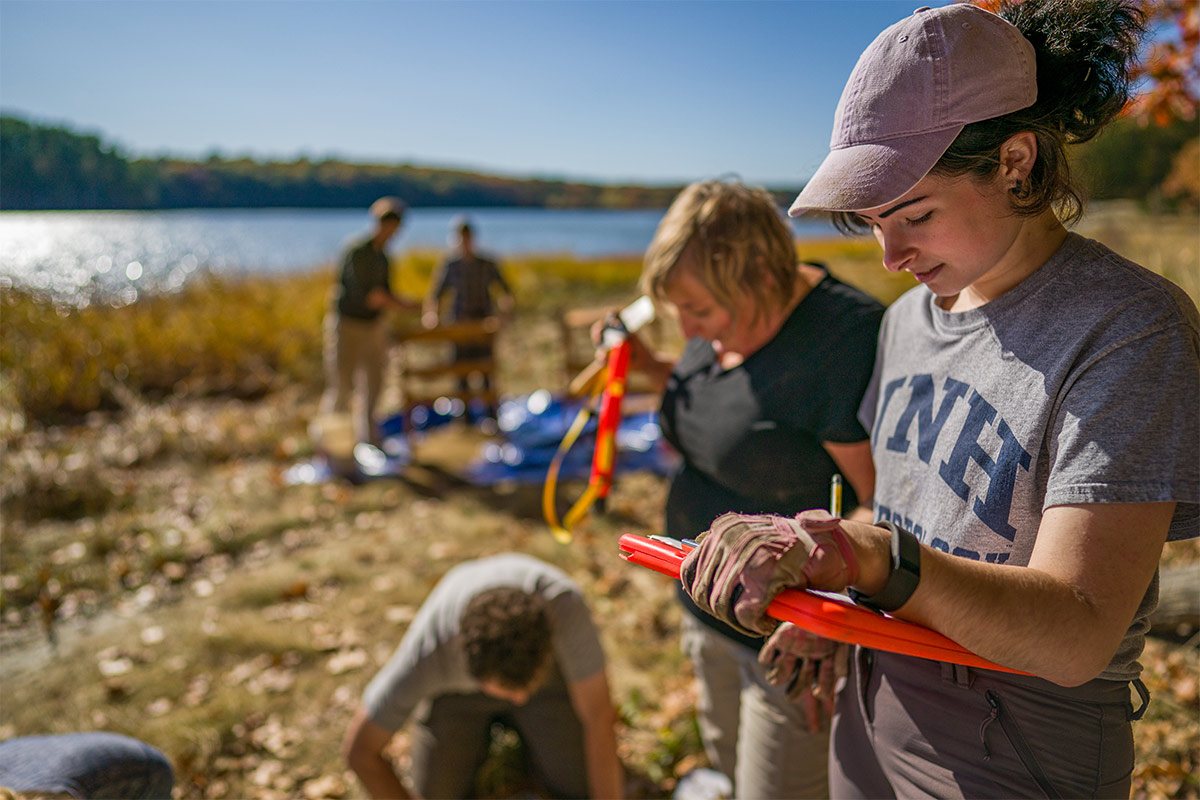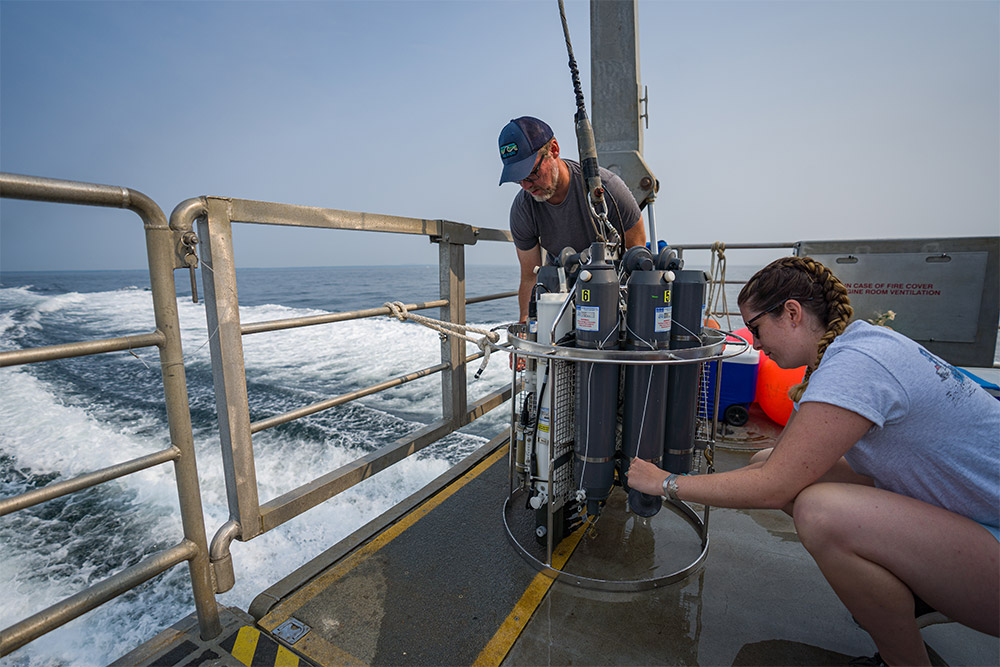
single grant in the College of Health and Human Services (CHHS) for $23.6 million. More than 200 awards at the Institute for the Study of Earth, Oceans and Space (EOS), UNH’s largest research center, totaling $60.2 million. Fiscal year 2020 was a record-breaking year for competitive research funding at UNH, which closed the books on June 30 with $129,815,354 in new grants and contracts. It’s the most external research funding the university has received in a single year, supporting UNH projects that range from improving preschool education in New Hampshire to bringing sustainable seafood to the table.
Funding came to projects across the university. In addition to the grants received by EOS and CHHS, the College of Life Sciences and Agriculture received $11.7 million, the College of Engineering and Physical Sciences received $9 million, $5.3 million went to the College of Liberal Arts, $4.8 million was awarded to UNH Cooperative Extension and $3.1 million went to the Peter T. Paul College of Business and Economics.

- A major preschool development initiative in New Hampshire, funded by a three-year, $26.8 million award from the U.S. Department of Health and Human Services ($23.6 million of which was received in FY20), will engage community partners throughout the state. Led by assistant professor of family studies and human development Kim Nesbitt, it is the single largest grant to a faculty member in CHHS.
- Two grants from the Office of Naval Research totaling $3.2 million will advance the ocean acoustics research of research professor Jennifer Miksis-Olds and UNH’s Center for Acoustics Research and Education, which she directs.
- With a prestigious National Science Foundation early CAREER grant of $903,581, assistant professor of mathematics education Orly Buchbinder will address a knowledge gap in understanding how new teachers utilize reasoning in their classrooms.
- Professor of anthropology Meghan Howey received $200,000 as a 2020 Andrew Carnegie Fellow to explore the socioecological “shock” of colonialism and the lasting imprint of colonial legacies in the current geological age.
- Several grants from the National Oceanic and Atmospheric Administration’s Saltonstall-Kennedy program will improve sustainability of the region’s fishing and aquaculture industries and bring better seafood to the table.
The federal government was the largest source of funding, sending $90.6 million to UNH, led by its Department of Health and Human Services ($19.1 million), National Science Foundation ($18 million) and NASA ($12 million). Research funding from business and industry — a promising source of research support as federal grants become more competitive — totaled $14.9 million, climbing steadily since FY17.
